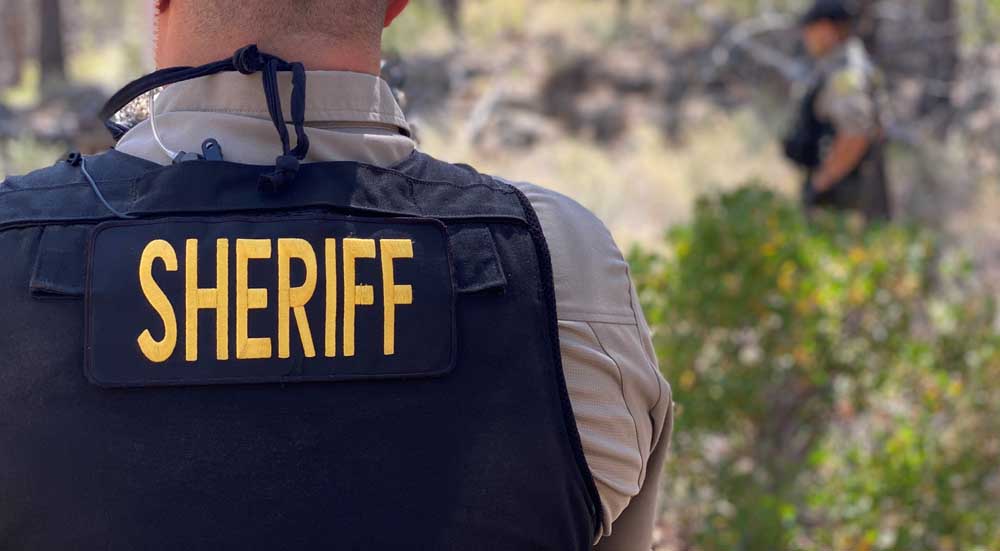Movies, TV examine issues in foster care
Published 5:00 am Thursday, August 29, 2013
“The Fosters” Begins in January, ABC Family
“Major Crimes” Begins Nov. 25, TNT
LOS ANGELES — Early on in the new movie “Short Term 12,” teenagers living in a group home gather as Nate, a neatly dressed young counselor with a nervous smile, introduces himself.
“I took a year off of school, because I wanted to get some life experience,” he says. “And I’ve always wanted to work with underprivileged kids.”
The term “underprivileged” doesn’t go over well, with one teenager letting loose an expletive-laced tirade.
Nate might be a minor character in the movie, but he stands in for first-time writer-director Destin Daniel Cretton, who spent two years working in a Southern California group home.
Cretton had imagined himself a savior of sorts, until reality set him straight.
“I quickly realized how much more complicated it was than that,” he said by phone.
It would be hard to overstate how complicated it is. The web of state-run foster-care programs in the U.S. serves more than 400,000 children, most of whom move from one home to another.
Behavioral issues or abuse by foster parents can lead children to short-term homes, like the one in the film, that also help homeless and runaway children who have not entered the system. Lesbian, gay and transgender youths have a particularly hard time in foster care. Many foster families refuse to take a gay child, while others inflict abuses like those that prompted the runaways to leave home in the first place.
Perhaps because of this complexity, the lives of children in or on the edges of foster care have rarely been shown on screen in a manner approaching realism. Lately a number of TV characters have been revealed to have spent time in foster care, including Temperance Brennan (played by Emily Deschanel) on “Bones,” Erin (Ellie Kemper) on “The Office” and Ricky (Daren Kagasoff), who was sent to a stable foster home on the recently concluded “Secret Life of the American Teenager.” But a handful of current works — including the cable series “The Fosters” and “Major Crimes” as well as “Short Term 12” — are putting plots involving foster care front and center even as they seek to avoid “Afterschool Special”-style lessons.
Dr. Brian Coughlin, vice president of programming and residential services for the nonprofit Los Angeles Youth Network, which helps runaways and the homeless, had a mixed verdict on “Short Term 12,” which stars Brie Larson as a young adult overseeing a way station for troubled teenagers.
“Overall, there’s a lot of it that was pretty accurate, but there’s a lot of it that was dramatized,” he said. “It does justice to a lot of issues that affect these kids, like sexual abuse, suicidal ideation and the radical ups and downs” of life.
Seated in his office at the network’s emergency housing site in Hollywood, Coughlin laid out his biggest complaint, namely easy outcomes.
“You don’t get that kind of resolution” in real life, he said. “What’s incredibly hard for the staff here, who I really admire, is to come in day after day and never see the fruits of their labor.”
He wondered whether truly realistic stories of foster youth could make for great movies or television.
“There just isn’t much resolution,” he said.
“The Fosters,” which recently concluded its first season on ABC Family, depicts a multicultural foster family headed by a mixed-race lesbian couple. When it began in June, news media attention focused on the series’ depiction of a lesbian family. As that attention has receded, “The Fosters” has emerged as a layered chronicle of the children’s lives.
“For us, it’s about figuring out how to tell these stories in ways that an audience can handle,” said a creator of the series, Peter Paige.
Rep. Karen Bass, D-Calif., “spent a day showing kids who had aged out of the foster care system around the set,” Paige said. “Listening to their stories, their stories are heartbreaking.”
Another cable series takes a grittier approach to a similar subject. In the Los Angeles police procedural “Major Crimes” on TNT, the main character, Capt. Sharon Raydor (Mary McDonnell), becomes an unofficial foster mother to Rusty (Graham Patrick Martin), a gay, homeless teenager and former sex worker who is a key witness in a case. “Major Crimes” treats Rusty with sympathy without glossing over his past. That’s because the character comes from a deeply personal place for the show’s creator, James Duff, who is gay.
“I ran away from home when I was 17,” said Duff, who said he is hoping to raise awareness of runaways or, as he called them, “thrown-aways,” by providing a window into a little-seen world.
“When I see what goes on now with thrown-away children in our own culture, I think Dickens would have blushed,” he said. “‘Oliver Twist’ is actually an uplifting story compared with the horrors that the unattended children of Los Angeles are suffering now.”








